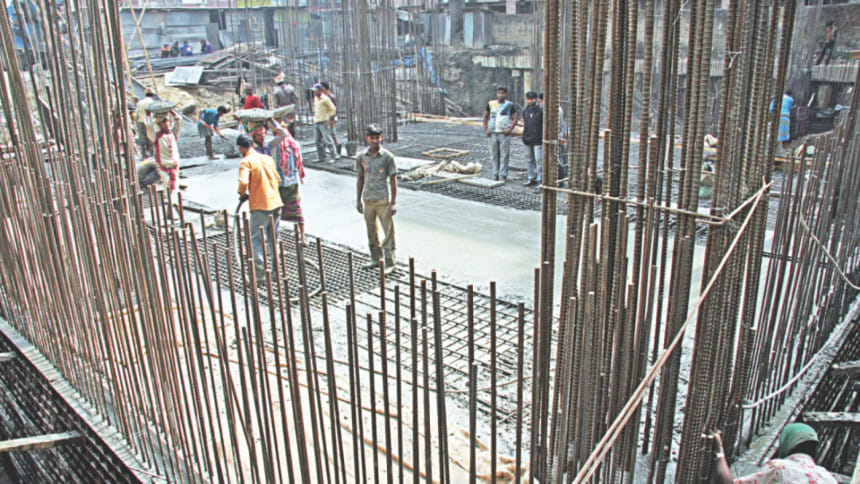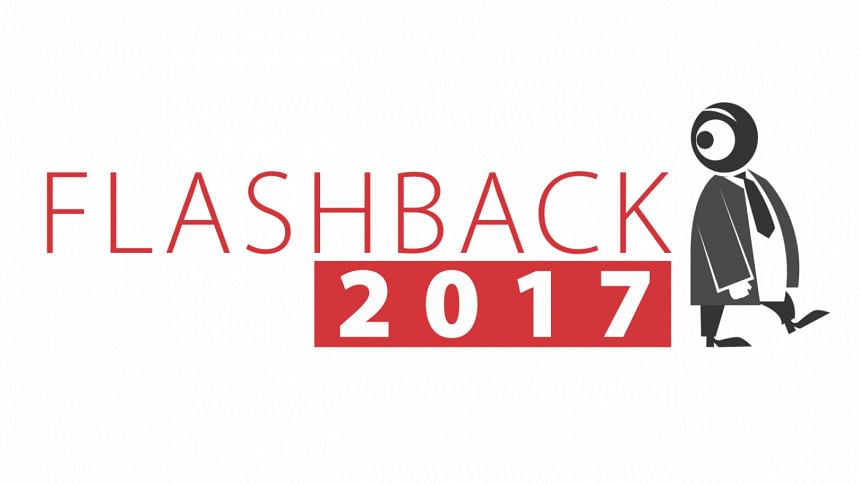Challenging year for steelmakers

Steelmakers passed a challenging year for a number of factors including rising import costs, port congestion, lack of gas supply and restriction on transport of goods by 20-tonne vehicles on the highways, industry insiders said.
The sector grew about 15 percent year-on-year in 2017, said Manwar Hossain, chairman of the Bangladesh Auto Re-Rolling & Steel Mills Association (BARSMA).
The association represents large mills, which increased production steadily to meet the growing demand for both public and private sector construction.
Domestic steel production, which was almost stagnant at 25-30 lakh tonnes a year between 2008 and 2014, rose in later years, leading millers to increase production capacity and go for backward integration.
With about 70 lakh tonnes of capacity, the mills produced 50-55 lakh tonnes of steel in 2017, up from 40-45 lakh tonnes a year ago, said SK Masadul Alam Masud, former chairman of BARSMA.
Hossain, also the managing director of Anwar Ispat, said the government's construction activities were the main driver of the growth.
"We have increased capacity. But we could not take production to the expected level because of inadequate supply of gas and electricity," he said.
Nervousness gripped the sector following the government's announcement to implement the new VAT law that sought to apply a 15 percent VAT from fiscal 2017-18 instead of the reduced rate that it paid at that time.
Operators feared that the imposition of 15 percent VAT will lead to an increase in the prices of rod and steel products and subsequently reduce the demand for steel products.
The government later deferred its implementation plan to 2019, bringing the steel millers some relief.
Masud said the government should not implement the VAT law as the sector will suffer for application of uniform VAT.

Meanwhile, millers faced trouble in carrying goods after the ministry of road, transport and bridges tightened rules on the transfer of goods by vehicles.
In November, the ministry slapped rules that 40-feet trailer should be used to carry 40-tonne cargoes on the highways.
The sudden imposition of the decision ground the carriage of raw materials from Chittagong port to a halt as much larger vehicles are needed, Hossain said.
"The steel industry will need 65,000 such trailers to carry the goods," he added.
As the supply of such trailers was less than demand, the freight charge also rose, millers said.
"We could not release any good from port for 17 days. The government should have assessed availability of such trailers and the amount of goods imported into the country," Hossain said.
The congestion at the Chittagong port also affected the sector. "Our costs have risen," he added.
Aameir Alihussain, managing director of BSRM, one of the largest steelmakers in the country, said the steel industry was under pressure in 2017. The steel sector did not grow as expected this year, he said, while forecasting 5-6 percent growth for 2017.
Masud said the production cost of mills rose this year for increased prices of electricity, gas and the appreciation of US dollar.
However, the industry made some progress in 2017, with one being that it has become almost self-sufficient in billet, the main raw material for rod.
"Those who had expansion plans could finish," Alihussain said, while citing the increased efficiency of the sector as another achievement.
For instance, the rod prices are now lower than in China and India, according to the BSRM chief.
However, none of the three cited any improvement in the ease of doing business in the outgoing year.
"Rather than becoming easier, doing business has become a little bit difficult in 2017," Hossain said.
Alihussain complained the processes have become much too centralised. "Every file has to go to Dhaka for decision. This is a problem for those doing business outside of Dhaka."
Steps should be taken to ease the movement of goods as entrepreneurs have to pay more for freight and pay fines for delays in clearance of goods from the port, he said.
"There is a huge lack of coordination. Efficiency will increase by 5-10 percent if the government takes decision in coordination with all stakeholders. Let the people participate," Hossain said.
Millers said the steel market will grow in 2018 because of the government's spending on infrastructure development ahead of election.
Alihussain said the government should take decisions in advance so that development activities continue during the election period.
"But political unrest could be a problematic factor. This would be the biggest challenge for us. All parties should give effort so that such a situation does not occur and affect business," Masud said.
Hossain said political instability will affect all. "All are concerned about it."

 For all latest news, follow The Daily Star's Google News channel.
For all latest news, follow The Daily Star's Google News channel. 



Comments